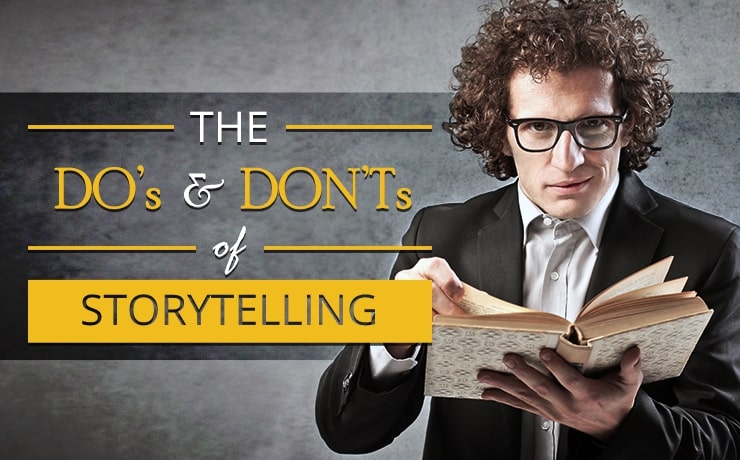5 Important Do’s and Don’ts of Storytelling That You Need To Know
Elizabeth Reyn

Everyone has a story to tell and everyone loves to hear a good story. I have yet to find many people who love them more than I do. The better described and the more vivid the detail, the more enjoyable the story is.
Despite my love for stories, I also know that there is a time and place to tell them. For instance, you’re not going to share that “this one time at band camp” story at a family dinner. Or tell your parents every single thing you did while away at college.
With marketing, the same rule applies: know your audience. While it’s okay to fit a story into a blog, a presentation to a prospective client, or on the content of your website, you should do so with caution. Because when story-telling is done properly it can be very effective for helping you with online marketing. Here are some do’s and don’ts that will help you in storytelling etiquette for marketing:
DO tell a story that’s relevant to the blog topic discussed. Sometimes to keep informal blog content from becoming dry, it helps to start it off with a story and have the content skyrocket from there. Readers like to be entertained and an informal blog is the place to do it.
DO be descriptive yet succinct. It’s not as contradictory as it sounds. If Ernest Hemingway could craft a short story in six words, it’s possible to have a descriptive story in a few sentences. No dialogue needed, just a simple anecdote about an occurrence or an event that is relevant to your website. Only include a longer personal story if the website calls for it.
DO strategically place stories into blogposts and conversations. If it calls for a story put one in. Story-telling shows a willingness to be relatable and connect with your audience. Keep the needs of the reader in mind and be aware of the response you want to exude.
DON’T tell a purposeless story with no meaning behind it. Even if its body is comedic or dramatic, a story with a poor ending will leave readers confused and wondering “what was the point of telling that story?” A seemingly pointless story is like the fat to your content. Cut the fat and include a story with a beginning, a middle, and an end.
DON’T become so consumed with your story that you forget about your website. A well-told story that does your website justice can be a great asset. A well-told story that stands alone can be a great asset elsewhere, like in a literary journal. Especially if you are a writer with an enthusiasm for story-telling, I know it’s hard, but you should limit this enthusiasm to a short paragraph. Don’t let the story overshadow your business.
DON’T be crude or offensive. This should go without saying. Also, monitor your comments section if you have one for crude and offensive comments. While everyone is entitled to their own opinions about content, leaving something up that is borderline inappropriate makes you look unprofessional as well.
Hope you have a happy story-telling!
 Free
Consultation
Free
Consultation Free
Google Ads Audit
Free
Google Ads Audit







